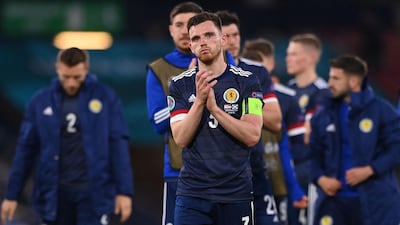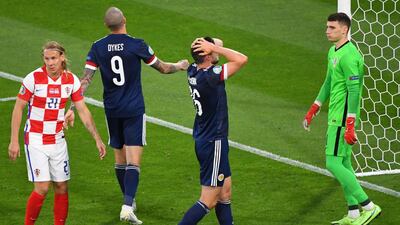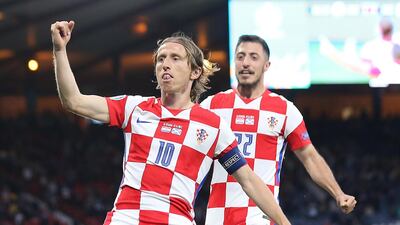It was a twist on one of the more fatalistic tournament songs ever released. Del Amitri captured the pessimism in the Scottish psyche with their 1998 World Cup anthem ‘Don’t Come Home Too Soon.’ Scotland duly exited at the first opportunity and didn’t come back to a major tournament for 23 years. Then, however, there was a shift: they went out at home.
Tuesday's 3-1 defeat to Croatia at Hampden Park extended an unenviable record. It was Scotland's 11th tournament and no European country has been at anything like as many without experiencing the knockout stages.
There was the familiar sense that fortune had not favoured Scotland: Billy Gilmour turned in a man-of-the-match performance against England only to test positive for coronavirus and miss the Croatia game. Luka Modric's timeless display of quality meant it was unlikely the apprentice would have out-passed and outclassed the master but Scotland could lament the loss of their precocious playmaker.
But their pivotal game was not the last but the first. Scotland drew with World Cup semi-finalists, in England, and lost to its runners-up, in Croatia. They can reflect on the chance John McGinn spurned at 1-1 but the real missed opportunity was the 2-0 defeat to the Czech Republic.
It was the one match where Steve Clarke, an astute tactician who has done a fine job, got his selection wrong. It was where an unfortunate absence harmed them most: Kieran Tierney makes a system work but he was injured.
With Gilmour omitted and Scott McTominay selected in midfield, Scotland fielded a back three without much passing ability. With Tierney and McTominay restored to the defence, they moved the ball upfield much better as they excelled in holding England.
But they had needed to beat the Czechs and benching Che Adams was a mistake. Scotland improved when the Southampton striker came on to add movement. The Leicester-born Adams is a find, but neither he nor his forward sidekick Lyndon Dykes could find the net. They had 13 attempts, with only three on target. Scotland’s tournament yielded 41 shots and a solitary goal, from Callum McGregor.
_______________
Croatia 3 Scotland 1: player ratings
_______________
They showed sufficient intent, but not enough quality in the final third. It explains Scotland’s long exile from the major stages. They have showed solidity and spirit many times in the last two decades and have had occasional moments of inspiration, but smaller nations can be more reliant on special players. No Scot has scored 20 international goals this millennium. They have long lacked a modern-day Denis Law or Kenny Dalglish.
One fundamental difference between Wales and Scotland is that the outstanding Welsh players are more natural attackers and thus likelier match-winners. Gareth Bale and Aaron Ramsey inspired Wales to their pivotal victory over Turkey. McGinn has been prolific outside tournaments for Scotland but the reality is that two of their four best players – the Aston Villa man and McTominay – operate at the base of midfield for their clubs and the other two, Tierney and Andrew Robertson, as left-backs.
The mantra from the captain Robertson and the manager was the same. “We'll make sure it's not 23 years until we go to the next tournament,” Clarke said. Dropped points in World Cup qualifying renders it less likely they will be in Qatar next year but a 24-team European Championships benefits Scotland.
Clarke has promoted youth – Nathan Patterson and Gilmour, both born in 2001, were uncapped a few months ago – and only veteran goalkeeper David Marshall of the starters is over 30.
This is a relatively young group and 2024 may represent the best chance for the Robertson-Tierney-McTominay-McGinn generation to achieve something that eluded all of their predecessors. They ended one wait for Scotland but another goes on.









































